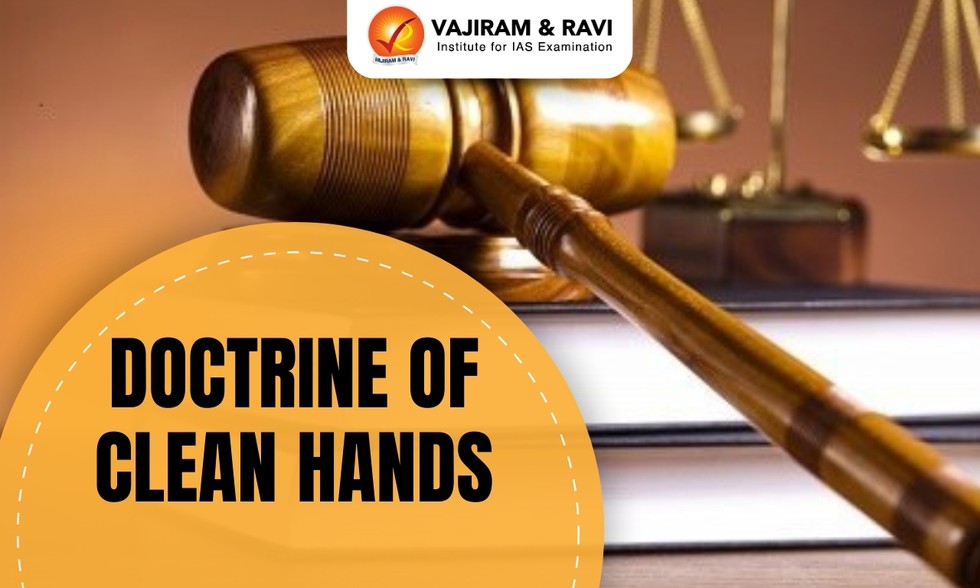About Doctrine of Clean Hands:
- The Doctrine of Clean Hands emphasises that those seeking justice must not engage in dishonest practices, ensuring that litigants approach the court with full transparency and integrity.
- It is an equitable principle that prevents a party from receiving relief or asserting a defense if they have acted unfairly or in bad faith concerning the very matter before the court.
- Essentially, a party seeking an equitable remedy must themselves have "clean hands" regarding the dispute to be granted relief.
- Simply put, the doctrine requires that “He who seeks equity must do equity.”
- The doctrine has its roots in the English Court of Chancery, which administered equity.
- Clean Hands Doctrine in Indian Jurisprudence:
- In Indian jurisprudence, the Supreme Court of India has consistently emphasized that litigants must approach the court with “clean hands,” meaning full and honest disclosure of all material facts relevant to the case.
- It would be trite that suppression of material facts implies disclosure of those facts which are essential to the decision-making process.
- If such material facts are suppressed, the Courts have held that the same amounts to fraud on the court, misrepresentation, or abuse of process of law.
- Such conduct disentitles the litigant to any relief, whether interim or final, and may attract exemplary costs, dismissal of proceedings, or even contempt actions.
- The court has described this as a fundamental requirement for invoking equitable jurisdiction, particularly in writ petitions under Article 226 or special leave petitions under Article 136.
